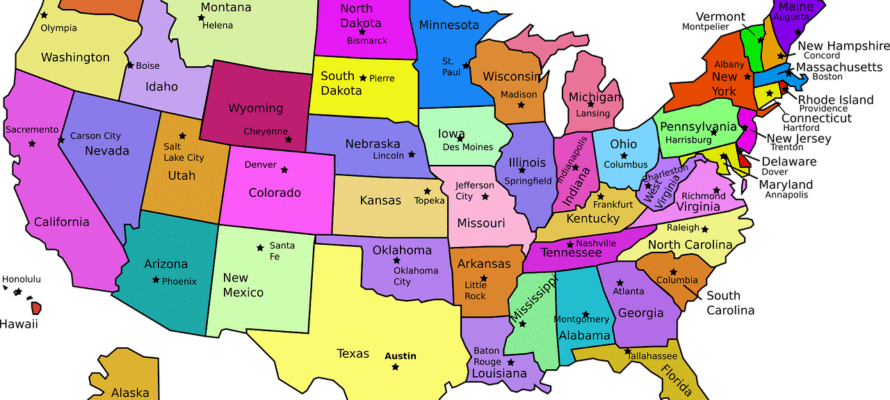
I get calls from women all the time who have lost their husbands. These women are already distraught from the loss of their lifelong partner and spouse, and I can feel their emotional and psychological pain over the phone calls we have. I do wish I had better skills in grief counseling and could help ease their pain, but often that is far outside what I am able to do. Instead, I will listen to their stories and then we can talk a little bit about their estate plans.
Most often, the widowed women who call me tell me that they need to update their estate plan now that their husband has passed away. That may be true, or it may not be necessary, depending on how an estate plan was originally written. A widow may also want to set up an estate plan in a different manner than the widow’s deceased husband, so that could be something that needs to be done. Updating the estate plan may also not be the primary focus of someone recently widowed. Depending on who handled finances during the marriage, a widow may struggle to know where all the assets are, what bills need to be paid, and how to proceed with all of the financial things a husband may have handled. In any case, when someone first becomes a widow, there are extreme emotional and psychological difficulties associated with the loss. Navigating legal matters of estate planning during such a traumatic time is definitely not the most pleasant thing to do, but it must be done.
Check Your Existing Estate Plan – You May be Already Covered
 Whenever I get a call from one of my clients letting me know that their husband has died, the first thing I do is tell them that they are probably already covered. In the estate plans that I write, and most other estate plans written by other attorneys that I see, we build in contingent plans for a person’s spouse passing away first. Most often, upon the first death of a spouse, everything passes to the surviving spouse. The surviving spouse’s will or trust will cover the circumstance of the surviving spouse being the second spouse to pass away by describing what happens if the person is the second spouse to pass away.
Whenever I get a call from one of my clients letting me know that their husband has died, the first thing I do is tell them that they are probably already covered. In the estate plans that I write, and most other estate plans written by other attorneys that I see, we build in contingent plans for a person’s spouse passing away first. Most often, upon the first death of a spouse, everything passes to the surviving spouse. The surviving spouse’s will or trust will cover the circumstance of the surviving spouse being the second spouse to pass away by describing what happens if the person is the second spouse to pass away.
Really, what we do is build a chain of who gets assets in different circumstances. A will or trust describes what happens to assets if a person’s spouse dies first. Then, the will or trust describes what happens to assets if a person is the second spouse to pass away – perhaps passing assets on to children, or to other named beneficiaries. If a widow’s will or trust contains such a series of beneficiaries, it may not be necessary to change the will or trust, as the estate plan already accounts for such circumstances.
You May Want to Change the Estate Plan to Reflect Your New Reality
 If you find yourself a widow, you may want to change your estate plan to reflect the new reality and circumstances of your life. Unless your estate plan contains restrictions on changing beneficiaries or restrictions on who may receive assets at the time of your death, you are free to change who will receive assets after you are gone. You may want to change what you leave to grandchildren, possibly leaving more assets to pay for the grandchildren’s college education, or perhaps you just feel it would be best to leave money directly to the grandchildren instead of counting on your children to pass the money along to your grandchildren. Or, you may find yourself needing to restructure the estate plan to account for no longer having a spouse.
If you find yourself a widow, you may want to change your estate plan to reflect the new reality and circumstances of your life. Unless your estate plan contains restrictions on changing beneficiaries or restrictions on who may receive assets at the time of your death, you are free to change who will receive assets after you are gone. You may want to change what you leave to grandchildren, possibly leaving more assets to pay for the grandchildren’s college education, or perhaps you just feel it would be best to leave money directly to the grandchildren instead of counting on your children to pass the money along to your grandchildren. Or, you may find yourself needing to restructure the estate plan to account for no longer having a spouse.
When you become a widow, you will likely lose not only your spouse, but also their income, whether they were working or just receiving a pension or social security payments. Some pensions pay out to a surviving spouse, but many do so at a reduced rate. Social security also pays out to a surviving spouse at a reduced rate, so income will likely decrease for a widow as opposed to a married couple. A widow’s estate plan might need to be adjusted to account for reduced income and potential higher usage of assets during the surviving spouse’s lifetime. As a widow uses up assets paying for her own life, an estate plan might need to be adjusted to account for the reduced value of the widow’s estate. The new reality of decreased assets may mean not all of the gifts in a will can take place, so adjusting the estate plan may be a great idea for a widow.
Adjusting Your Estate Plan Will Likely Not Be the Only New Reality
 Adjusting an estate plan will likely be just one of many adjustments to life as a widow. I have been told by many widows that their house seems empty and lonely and that the house seems just a bit colder. Other widows tell me they just miss the ability to converse with their husbands. I have also found that many widows were not fully aware of all of the financial picture or other financial considerations – like what bills needed to be paid during the month, or where all assets are held – during a marriage. In almost all marriages, different financial matters are handled by different spouses. I have set up most things to be automatically paid, but my wife may not be aware of all of the automatic payments and when and how they come up. We certainly talk about such things, but then the automatic payments happen, and the principle of “out of sight, out of mind” comes into play, and I cannot say my wife would remember everything I told her about every bill we pay!
Adjusting an estate plan will likely be just one of many adjustments to life as a widow. I have been told by many widows that their house seems empty and lonely and that the house seems just a bit colder. Other widows tell me they just miss the ability to converse with their husbands. I have also found that many widows were not fully aware of all of the financial picture or other financial considerations – like what bills needed to be paid during the month, or where all assets are held – during a marriage. In almost all marriages, different financial matters are handled by different spouses. I have set up most things to be automatically paid, but my wife may not be aware of all of the automatic payments and when and how they come up. We certainly talk about such things, but then the automatic payments happen, and the principle of “out of sight, out of mind” comes into play, and I cannot say my wife would remember everything I told her about every bill we pay!
Many couples who are my grandparents’ age haven’t even had those types of conversations. My wife’s grandmother was widowed just a few years into my marriage. My wife’s grandmother found herself needing to quickly learn all about finances and other things after her husband passed away. One of the funnier things was that she had to learn how to put gas into her car as an 80 something year old woman. She had just never been the one to buy gas and pump the fuel into the car during her marriage, so her kids taught her how to do what seems like a fairly simple task to those of us who have driven most of our lives. My parents taught me as a 16 year old, and I taught my kids when they learned to drive. My wife’s grandmother had to learn how to pump gas, how to access their bank account, how to find the bills and pay them, and had to do all of this in a relatively short period of time. She got it all figured out and lived a happy life for nearly a decade after losing her husband, but the initial learning curve was steep. Adjusting to life without a spouse is definitely a challenge.
Plan Now So You Can Plan Ahead
I have a financial planner friend who is always pushing her female clients to talk to their husbands about financing. She wants the women to be better prepared for when they may lose their husbands. I wholeheartedly endorse this approach. I reflect that same sentiment in setting up an estate plan to account for what happens when a first spouse dies, or the second spouse passes on. I do realize things change when one spouse passes away, and that changes to an estate plan are often necessary for a widow. Whether planning ahead, or changing things when you become a widow, having an experienced estate planning attorney help you in setting up the right way is definitely helpful. Having an experienced estate planning attorney who likes to listen to the stories his clients have to tell is a bonus – I do love hearing my client’s tell me about their lives! If you want to make an appointment to plan ahead, or to revisit your estate plan because you are now a widow, click the button below.

 720-730-7274
720-730-7274









